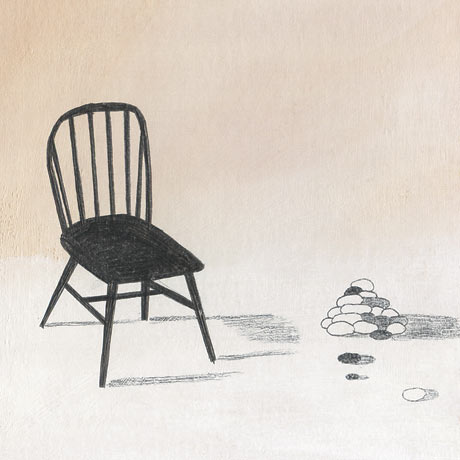
The sorites paradox is a big part of why I never got a graduate degree. This puzzle, which I was obliged to consider in brain-numbing depth, concerns the question of how many pebbles make a heap. Two or three aren't a heap; 100,000 clearly are. Yet there's no precise number at which non-heap becomes heap, or vice versa: a single pebble can never make the decisive difference. "Heap" is an intrinsically vague notion, with unavoidably blurry edges; there's no precise threshold for heapness. But there was a threshold to my tolerance for three-hour seminars about it. Before long, I joined the heap of PhD dropouts, my dreams of academic greatness dashed – I'm tempted to say pebbledashed – for ever.
But perhaps I was too hard on the paradox, since among the points it illustrates is one pop psychology routinely ignores: vagueness has its uses. ("Heap" isn't worthless just because it's vague, after all.) But listen to most self-help gurus and you'd never know it: lack of specificity, especially when it comes to goalsetting, is treated like a crime. "Vague goals are as destructive as impossible goals," says the Handbook Of Human Performance Technology. "Vague goals have little motivating power," adds Richard Daft (I'm on thin ice mocking people's surnames, so I shan't) in Understanding Management. The fixation unites employers – who adore SMART goals (the first two letters stand for "specific" and "measurable") – with flakier adherents of the "law of attraction", who insist the universe answers requests only if they're precise: to earn more, decide on a figure and display it around your home.
There's plenty wrong with each of these (for example: vast wealth won't make you happy), but it's worth considering that specificity itself might be a problem, too. Clear goals can be motivating, but also set extra hurdles to fail at: even if vast wealth did make you happy, missing your goal by a few pounds wouldn't matter. Worse, they risk distorting behaviour in the same way government targets distort policy. Famously, NHS targets on hospital beds led trolleys to be redefined as beds. An obsession with specific goals, the management scholar Lisa Ordóñez has shown, tempts workers to cut ethical corners. Something similar happens on a personal level: get too consumed with a certain professional or relationship goal, say, and you'll sabotage the very happiness you were pursuing.
Even our most cherished notions may be best approached vaguely. As Robin Hanson argues at OvercomingBias.com, cultures tend to develop the most specific language for the things that matter most: that's the shred of truth behind the myth about Eskimo words for snow. Yet when it comes to love, we get vague. Maybe, Hanson says, that's because "if we described our relations in more detail, we would have to acknowledge finer changes in our relations. [Saying "I love you" means] we don't have to announce when our relation moves from hopeful lust to wild passion to tender comfort to favourite-old-shirt familiarity. Such announcements could be quite awkward, especially if our perceptions are not exactly in sync." Vagueness has its upsides: a whole heap of them.
• A collection of Oliver Burkeman's columns, Help!: How To Become Slightly Happier And Get A Bit More Done, is published by Canongate Books at £12.99. To order a copy for £10.39 (including free UK mainland p&p), go to theguardian.com bookshop, or call 0330 333 6846.
oliver.burkeman@theguardian.com

